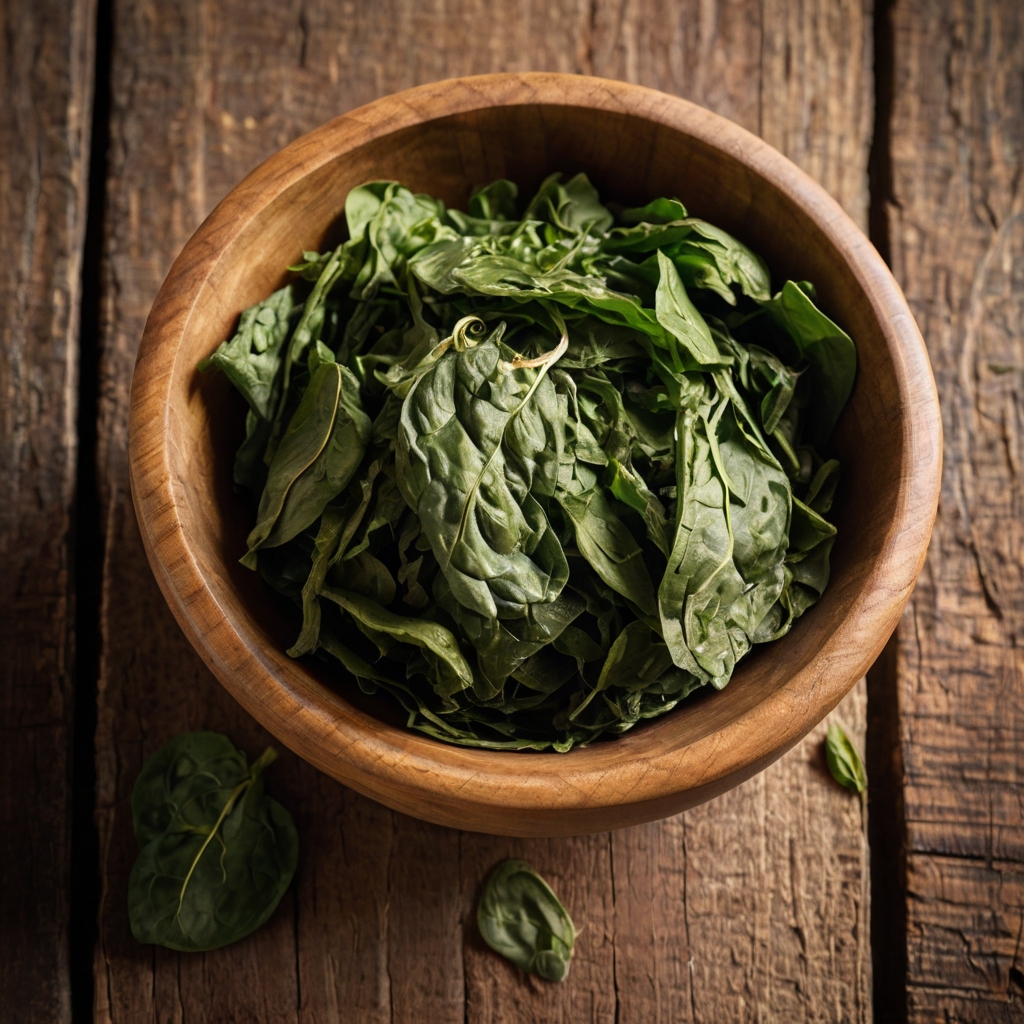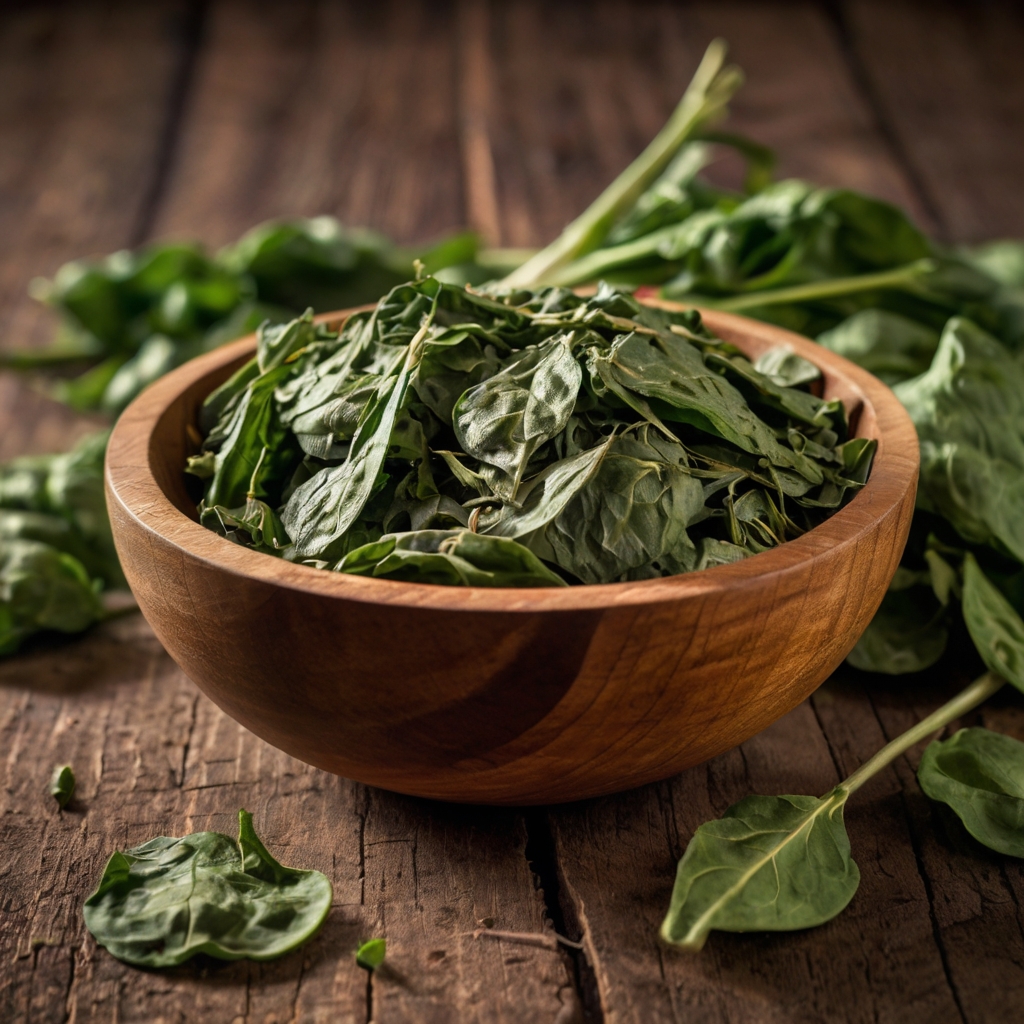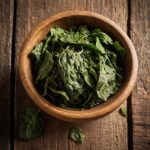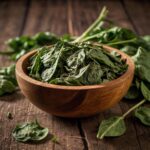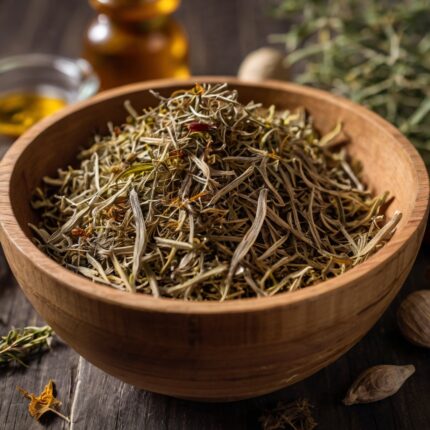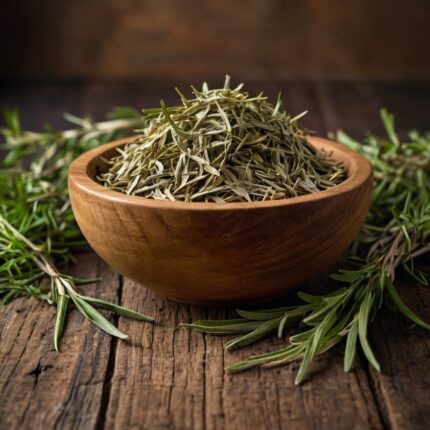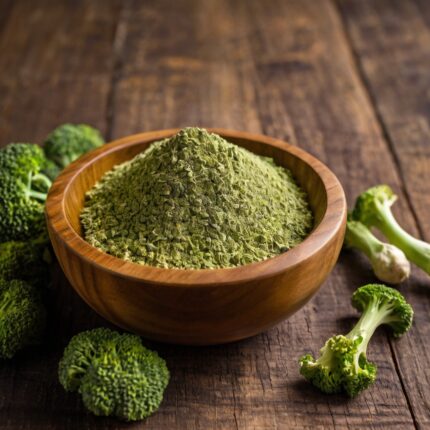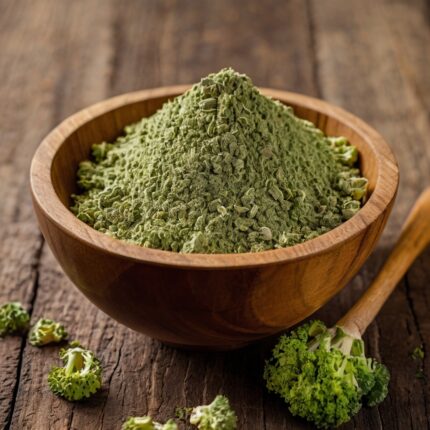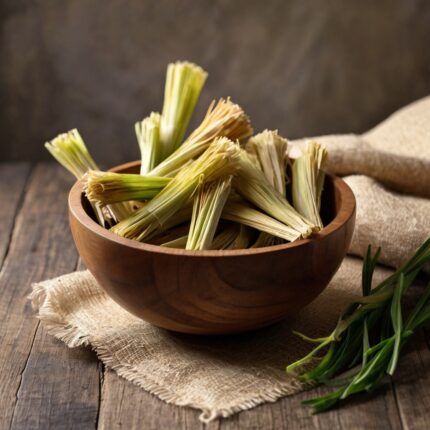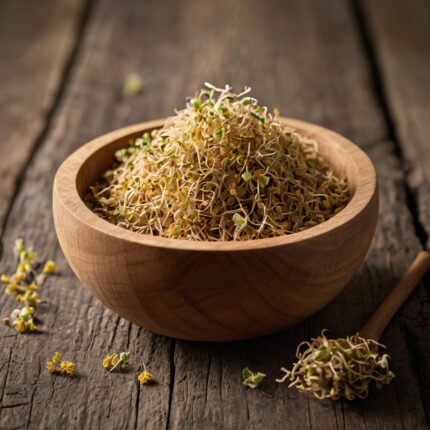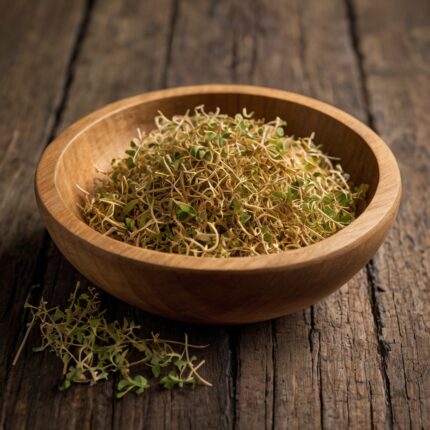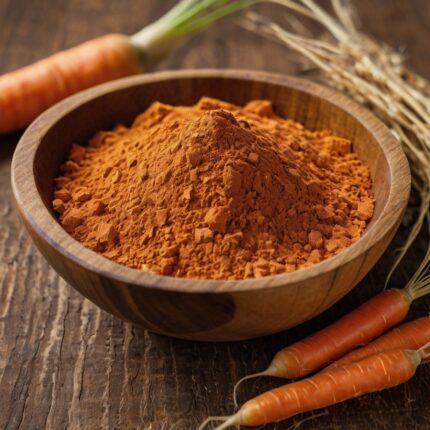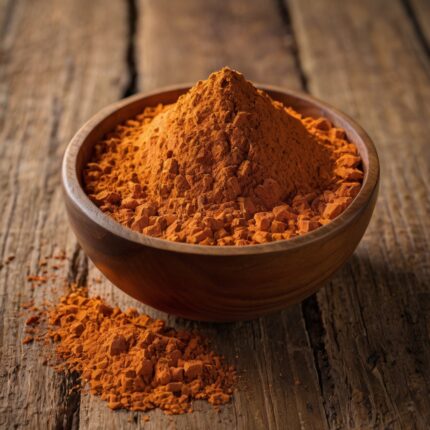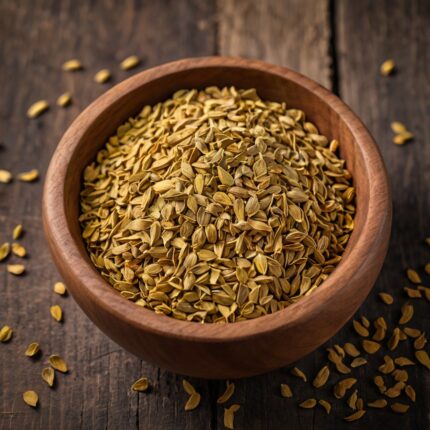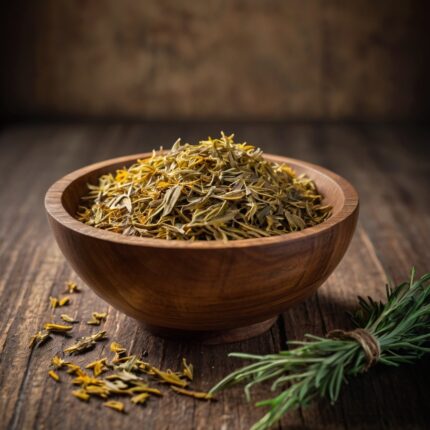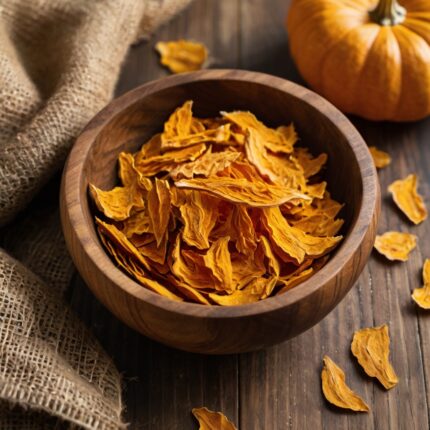Dried spinach refers to fresh spinach (Spinacia oleracea) that has been dried for long-term storage or culinary use. Spinach is a highly nutritious leafy green, rich in vitamins, minerals, and antioxidants, which makes dried spinach a convenient and sustainable alternative to fresh spinach.
- Culinary uses:
Dried spinach is a highly versatile ingredient that can be rehydrated or used in powdered form in a wide range of dishes. Below are some common ways to use dried spinach:
- Soups and stews:
Dried spinach can be rehydrated and added to soups, stews, and broths. It can enhance the flavor and nutritional value of these dishes. Simply soak it in warm water for 10 to 15 minutes before adding it to your dish. - Smoothies:
Spinach powder (made from dried spinach) can be added to smoothies to boost their nutritional value. This is a great way to add the health benefits of spinach without the strong taste of fresh greens. - Baking ingredients:
Dried spinach can be turned into powder and added to breads, muffins, pancakes, or other baked goods. This powder gives the dough an earthy flavor and a green color. - Pasta and pizza dough:
Spinach powder can be added to pasta or pizza dough to create nutrient-rich, colorful versions. This powder blends easily without overpowering the taste of the food. - Seasonings and spices:
Dried spinach powder can be used in seasoning blends, especially in savory spice mixes. It can be used to flavor vegetable dishes, casseroles, and dips. - Burgers and vegetable patties:
You can add dried spinach powder to veggie burgers, lentil patties, or meatballs to boost their nutritional content and give them a beautiful green color. - Egg dishes:
Rehydrated dried spinach can be added to boiled eggs, omelets, or quiches to enhance their nutritional value and flavor. - Salads:
While dried spinach is not typically used directly in salads, it can be rehydrated and added to salads to incorporate more green elements into them.
- Medicinal and health uses:
- Iron supplement:
Spinach is rich in non-heme iron, which is important for preventing and treating iron-deficiency anemia. Including dried spinach in the diet can help increase iron intake. - Digestive health:
Due to its high fiber content, dried spinach aids digestion, promotes bowel health, and helps prevent constipation. It also supports regular bowel movements. - Detoxification:
Spinach is known for its detoxifying properties. It helps cleanse the liver and remove toxins from the body, contributing to overall health and vitality. - Bone health:
The high levels of calcium and vitamin K in dried spinach contribute to bone health by aiding in calcium absorption and bone mineralization.
| Nutrients | Amount per 100 grams of dried spinach |
| Calories | 350–380 kilocalories |
| Protein | 30–35 grams |
| fat | 6–8g |
| Saturated fat | 1–1.5 grams |
| Carbohydrates | 60–65g |
| Dietary fiber | 30–35g |
| sugar | 3–5 g |
| Vitamin A | 15,000–20,000 international units (important for eye health and immune system function) |
| Vitamin C | 50–60 milligrams (supports the immune system, skin health, and iron absorption) |
| Vitamin K | 800–1,000 micrograms (important for blood clotting and bone health | )
| Folate | 150–200 micrograms (important for cell division and DNA synthesis) |
| Vitamin B6 | 1.5–2 milligrams (supports brain function and metabolism) |
| Calcium | 600–700 milligrams (supports bone health) |
| Iron | 10–15 milligrams (important for oxygen transport in the blood) |
| Magnesium | 250–300 milligrams (important for muscle and nerve function) |
| Potassium | 1,500–2,000 milligrams (helps regulate blood pressure and muscle function) |
| Zinc | 2–3 milligrams |
